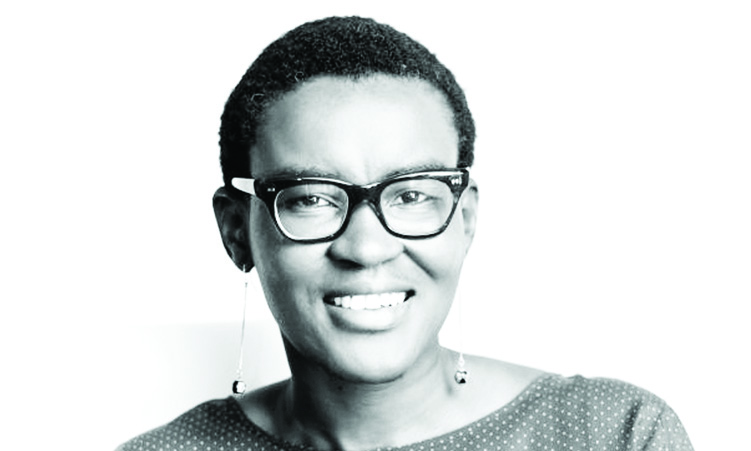When Independent Patriots for Change (IPC) leader Panduleni Itula first burst onto the political scene as an independent candidate, the concept of non-partisan people being elected to positions of influence was relatively unknown in Namibia.
This happened despite Katjanaa Kaurivi having had a successful run in the Otjombinde constituency in 2015.
Katjanaa was a Swapo member at the time, who opted to run independently, citing the sluggish pace of development at his constituency.
INITIAL AIM
Speaking to The Namibian, Itula said while he contested the Presidency against Swapo leader Hage Geingob, becoming Namibia’s president was initially not his aim.
His reason for contesting, he said, was to be in a position in which he could challenge the use of electronic voting machines (EVMs) in the 2019 national elections.
“What was critically important was for us to get rid of an unlawful process of electing our leaders through electronic voting machines, which did not have any paper trail and therefore no verification . . ,” Itula said.
“For me to be able to challenge the validity and legitimacy of the use of the EVM machines, I needed to have locus standi,” he said.
GAINING MOMENTUM
Itula made a mark on the local political scene when he came second in the presidential race in 2019, scooping 29,4% of the total presidential votes with 242 657 votes, followed by Geingob, who stood at 53,3% of the total number of votes with 464 703.
His participation seemingly inspired an entire generation of would-be leaders, with the 2020 regional and local authority elections seeing a spike in the number of independent candidates.
The trend is further gaining momentum, with former deputy executive director of finance and public enterprises Ally Angula planning to run for the Presidency in this year’s presidential election as an independent candidate
.
“We need people who are economically literate to take us into the next phase of our struggle. Our next phase is not a political, but an economic war,” Angula told Desert Radio recently.
Independent candidate and current member of parliament in the national council Paulus Mbangu says independent candidates exert their influence on issues far easier than members of established parties.
“We focus on what is important and relevant to our people and remain impartial,” he says.
RISK
Swanu of Namibia politician Evilastus Kaaronda says the current surge in the number of independent candidates is fuelled by political aspirants who find it impossible to contest for presidential elections within their political parties.
“The only option left is to contest the elections outside of the political party, which invariably leaves such individuals at risk of expulsion from their parties,” he says.
According to the former trade unionist, the benefit of campaigning within a political party is credibility.
‘GOOD FOR DEMOCRACY’
Political analyst Ndumba Kamwanyah says having a bigger pool of presidential candidates provides opportunities for the electorate to expand their choices, which is good for democracy.
He, however, decries the motives behind the emergence of some candidates.
“They are not clear as to what kind of government Namibia would have if they emerged to leadership,” Kamwanyah says.
Itula said he had a strategy mapped out on how he was going to constitute his cabinet.
“I would have appointed eight technocrats on a non-partisan basis to come into Cabinet, and four from within,” he said.
Kaaronda says an independent candidate in Namibia’s system of parliamentary democracy would have insurmountable difficulties to govern, because the executive arm of the state is drawn from members of parliament.
“At the present moment no one can become a member of parliament unless they are on a party list,” he says.
In his own words, ascending to the Presidency as an independent candidate is tantamount to being the general of an army without soldiers, depending on mercenaries.
‘NOTHING FOR MAHALA’
While Itula may have ascended to political prominence as an independent candidate, his party does not entertain the idea of its members running as independent candidates.
“Freedom of association is a constitutional right. However, within the IPC constitution we have a provision that allows you to associate with the IPC on condition that you are willing to participate in political activities where you are freely chosen by representatives.”
He said when he ran as an independent candidate he was not a member of Swapo, but a member of ‘Swapo of Namibia’, which he said was the liberation movement.
Meanwhile, it has emerged that an independent candidate for the position of president must deposit N$10 000 with the State Revenue Fund and demonstrate the support of at least 500 registered voters in each region, totalling 7 000 voters.
“Presidential candidates nominated by registered political parties must deposit N$20 000, and all political parties must demonstrate the support of at least 3 500 registered voters distributed evenly from a minimum of seven of the regions in Namibia” to register.
The deposits are forfeited to the state if the candidate is unsuccessful in his or her bid, the 27th ‘Pro Bono’, a Legal Assistance Centre (LAC) circular, reads.
According to the LAC mouthpiece, an independent candidate for a regional council must demonstrate the support of at least 150 registered voters in the relevant constituency.
“All regional council candidates must deposit N$2 500 with the State Revenue Fund,” the circular reads.
Stay informed with The Namibian – your source for credible journalism. Get in-depth reporting and opinions for
only N$85 a month. Invest in journalism, invest in democracy –
Subscribe Now!






